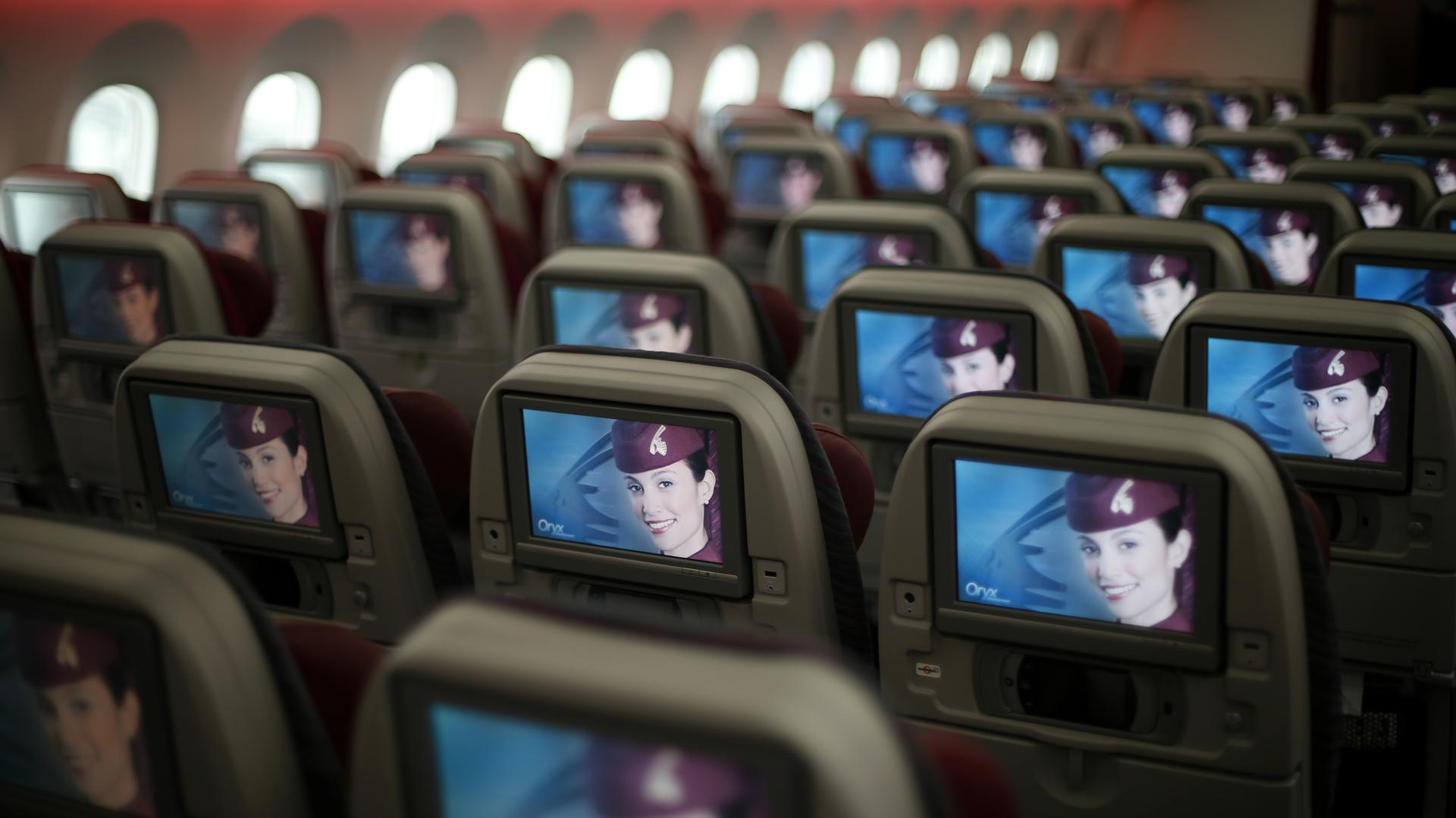The cabin of a Qatar Airways Boeing 787 Dreamliner. Passengers flying Qatar Airways will no longer be able to carry on electronic devices larger than a cell phone when flying to the US.
Britain and the US on Tuesday banned laptops and tablet computers from the passenger compartment of flights from several Middle East and North African nations.
The restrictions are different in the two countries and only Britain specified the maximum size of device allowed: 6.3 by 3.7 inches.
A French civil aviation agency spokesman said France was considering whether to impose similar measures.
Here is what we know so far:
Airports affected
The US ban applies to flights from 10 airports in eight countries.
The airports affected are:
– Queen Alia International in Amman, Jordan
– Cairo International in Egypt
– Ataturk in Istanbul, Turkey
– King Abdulaziz International in Jeddah, Saudi Arabia
– King Khalid International in Riyadh, Saudi Arabia
– Kuwait International
– Mohammed V International in Casablanca, Morocco
– Hamad International in Doha, Qatar
– Dubai and Abu Dhabi in the United Arab Emirates
The British ban affects all the airports in six countries: Egypt, Jordan, Lebanon, Saudi Arabia, Tunisia and Turkey.
Banned devices
Britain said it would be banning "phones, laptops or tablets larger than a normal-sized mobile or smartphone" from direct inbound flights from the countries named.
It specified that the ban would apply to devices bigger than 6.3 by 3.7 inches — smaller than some e-readers like Kindles.
The United States said its ban applied to all electronic devices larger than an average-sized mobile phone, including game consoles.
Affected airlines
Since US airlines do not have direct flights from the airports affected, its ban affects nine non-US airlines: Royal Jordanian, EgyptAir, Turkish Airlines, Saudi Airlines, Kuwait Airways, Royal Air Maroc, Qatar Airways, Emirates and Etihad Airways.
The British ban affects six British airlines, including charters: British Airways, EasyJet, Jet2.com, Monarch, Thomas Cook and Thomson.
It also impacts eight foreign carriers, including Egyptair, Royal Jordanian, Tunis Air and Turkish Airlines.
Timing of bans
Airlines in the United States have been given 96 hours, beginning at 3:00 a.m. EST on Tuesday, to inform travelers. Officials were not able to say when the order would end.
The British ban applies immediately from Tuesday and also has no end date.
Why impose bans?
Officials in both Britain and the United States would not give any details on what exactly prompted the bans.
The US Department of Homeland Security, however, said extremists were seeking "innovative methods" to attack jets.
It cited an incident in Somalia in February last year in which the Shabaab insurgent group said it had managed to place a bomb in a plane leaving Mogadishu for Djibouti.
The device exploded shortly after takeoff, ripping a hole in the plane's side, but killed only the suspected bomber before the aircraft landed safely.
American authorities also cited the downing of a Russian airliner in Egypt in 2015, as well as attacks at airports in Brussels and Istanbul.
A government source in London only said Britain was "privy to the same intelligence" as the United States.
British Transport Minister Chris Grayling said: "We face a constantly evolving threat from terrorism and must respond accordingly."
CNN quoted a US official as saying the ban was believed to be related to a threat posed by al-Qaeda in the Arabian Peninsula, known as AQAP.
